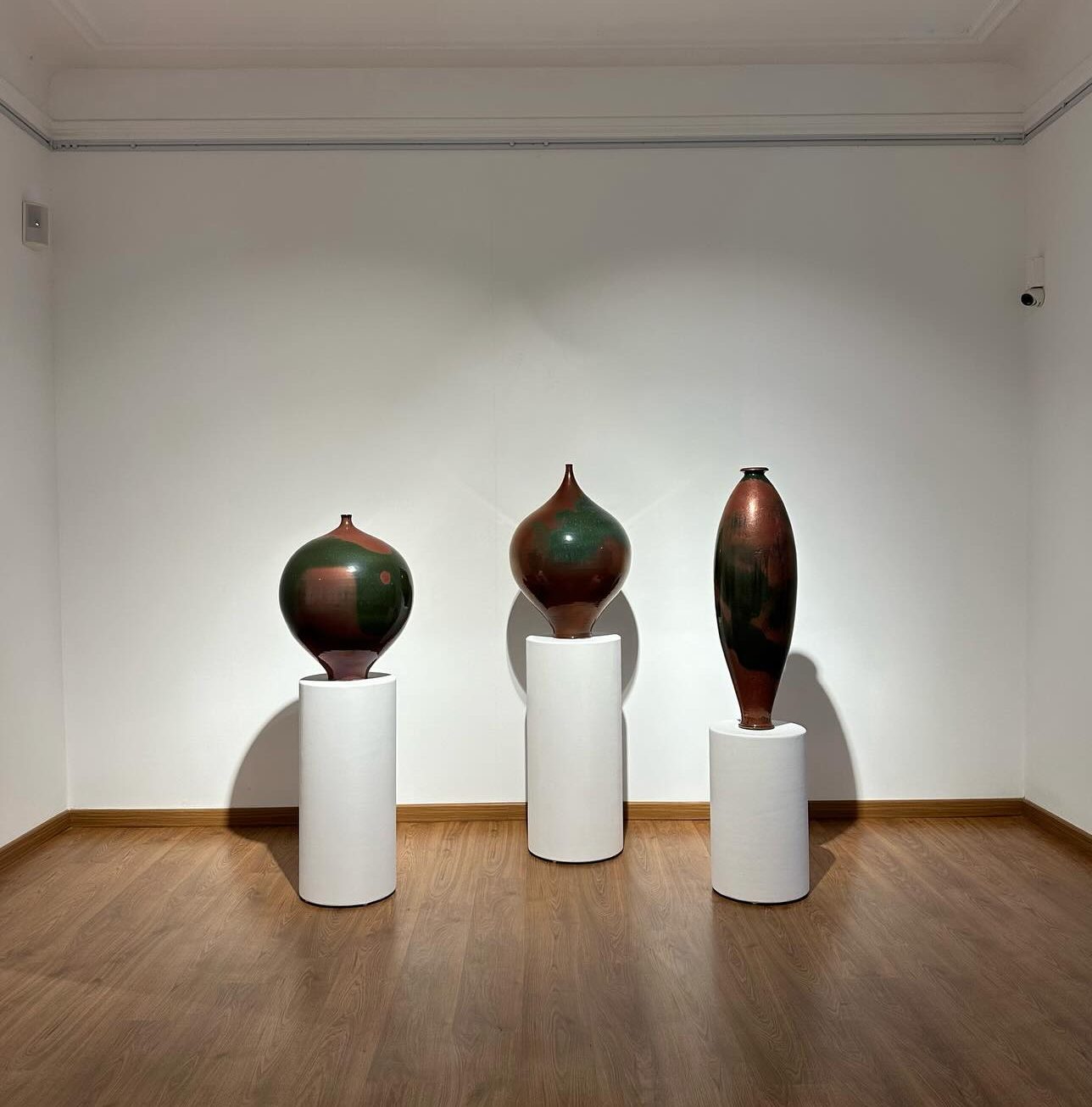In the world of contemporary art, Hany Mandour’s journey is proof of the importance of preserving the art of ceramics and passing on its legacy to future generations. In a time characterised by debates over the definitions of contemporary and modern art, Mandour’s work symbolises the importance of nurturing expertise and the continuity of artistic traditions within specialised families.
Paternal Influence
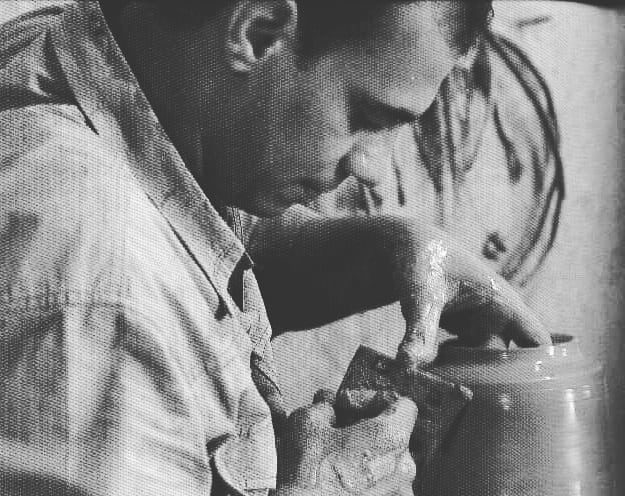
via Instagram
Hany Mandour’s artistic voyage was profoundly shaped by his companionship with his father, the renowned artist Mohamed Mandour. This period was instrumental in passing down his skills, creative abilities, deep passion for art, and unwavering dedication to the process. The experiences and techniques passed down from his father served as the solid foundation upon which Hany Mandour built his understanding and awareness of ceramic art.
This paternal mentorship provided an alternative to formal academic studies, given the elder Mandour’s diverse experiences in the art world. These experiences, accumulated over a long and illustrious artistic journey, granted young Hany a practical edge that many artists struggle to attain.
A Commitment to Teaching
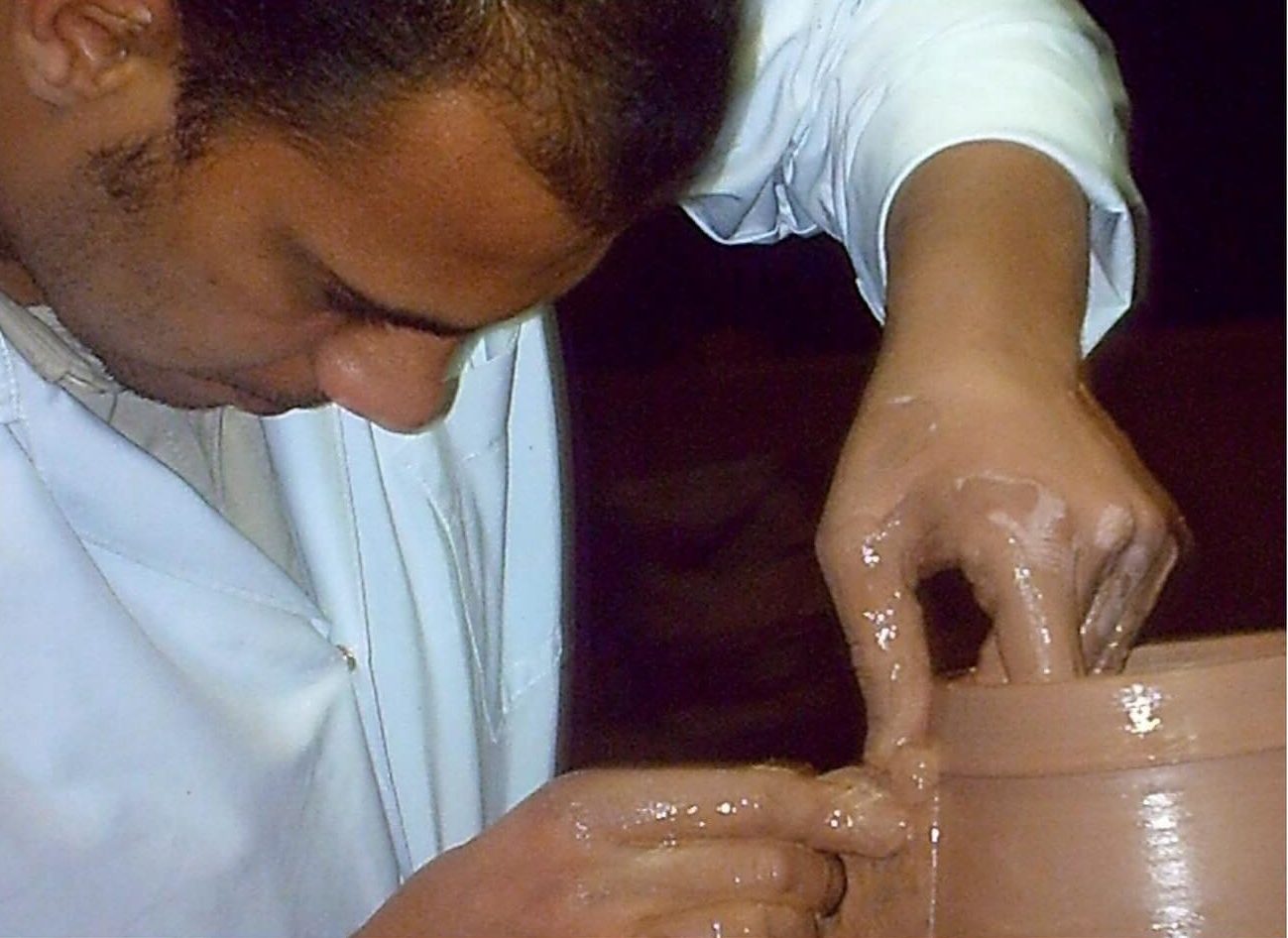
2002 was a pivotal year as it marked the debut of Hany Mandour’s teaching career at the Salama Moussa Association for Community Services in Minya. This experience strengthened his commitment to education and laid the groundwork for his future endeavours.
During this period, Mandour realised his proficiency in conducting art classes, mainly focusing on ceramics. The Association bore witness to students mastering this art form, with some reaching exceptional levels of skill and artistry under Mandour’s guidance.
International Exposure

In 2005, Hany Mandour’s artistic journey took an exciting turn when he was chosen by the British Council in Cairo to represent Egypt in the Egyptian-British programme, Partnership in Creativity. The courses, conducted at Hangrove School in Bristol, England, involved teaching technical workshops to British schools.
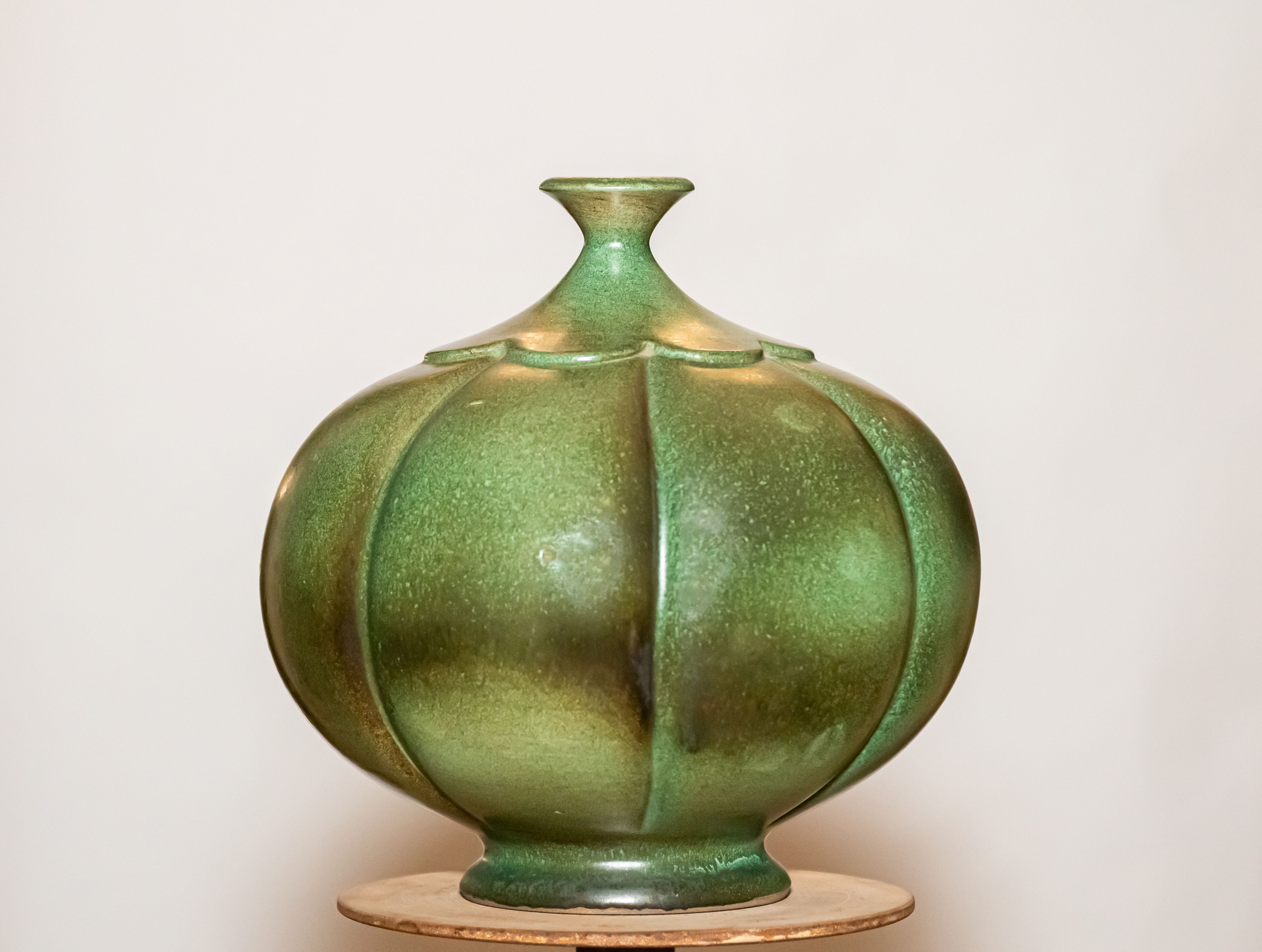
This experience extended over three years, enabling Mandour to engage with diverse teaching methods and concepts. His confidence and adaptability were evident, notably in his contributions during the first year of the programme upon his return to Egypt. He organised teaching workshops for students at the Experimental School, and the students’ creations were exhibited in Bristol the following year, earning praise for their excellence.
Showcasing Egyptian Artistry
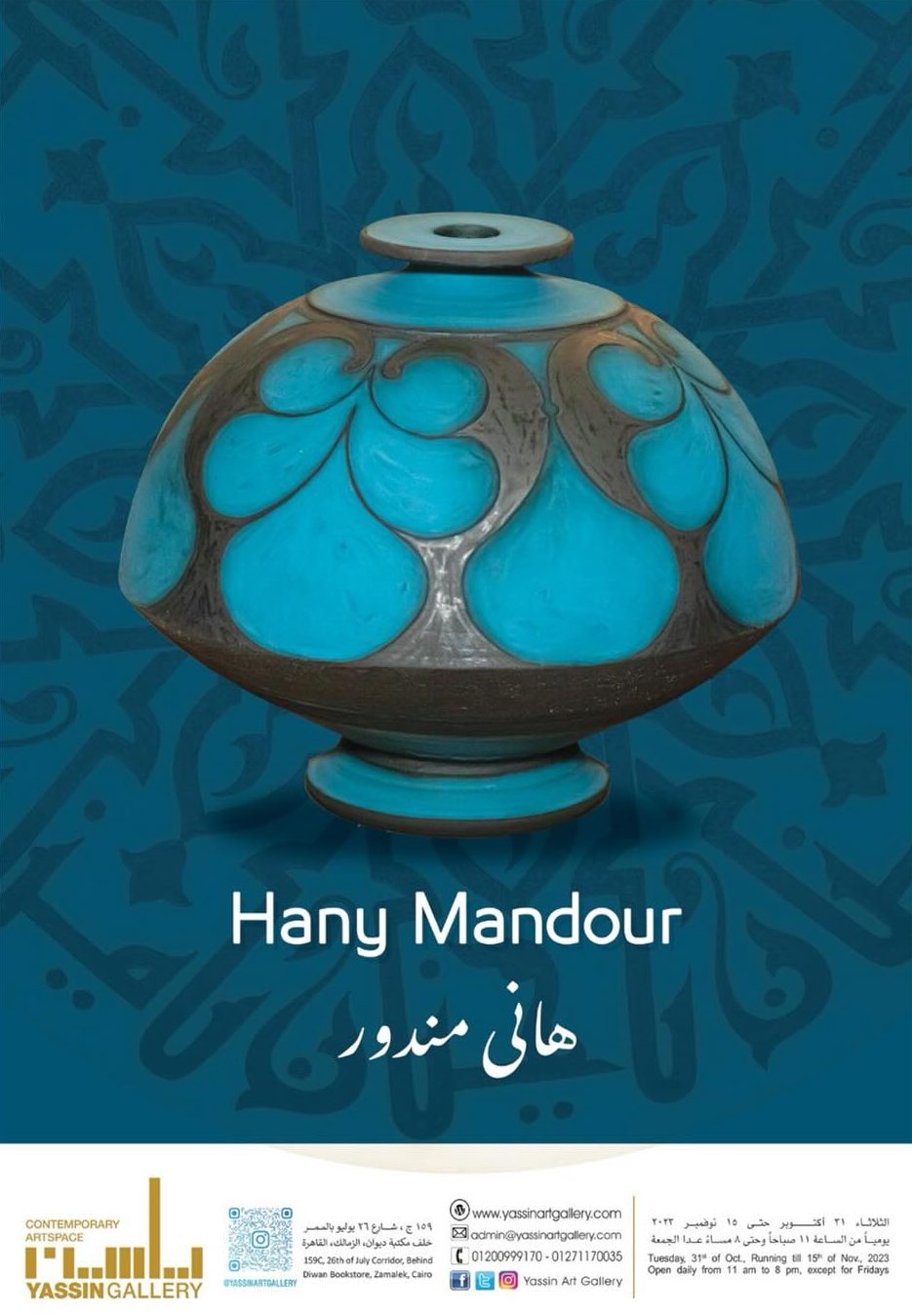
In 2007, Mandour held a solo exhibition in Manchester, reaffirming his commitment to preserving the classicism of ceramic art rooted in ancient Eastern traditions. Mandour’s approach focuses on decorative and calligraphic details while simultaneously striving to incorporate contemporary elements into his work. His perspective as a contemporary artist underscores the importance of preserving the integrity of ceramic art while reimagining it in a modern context.

